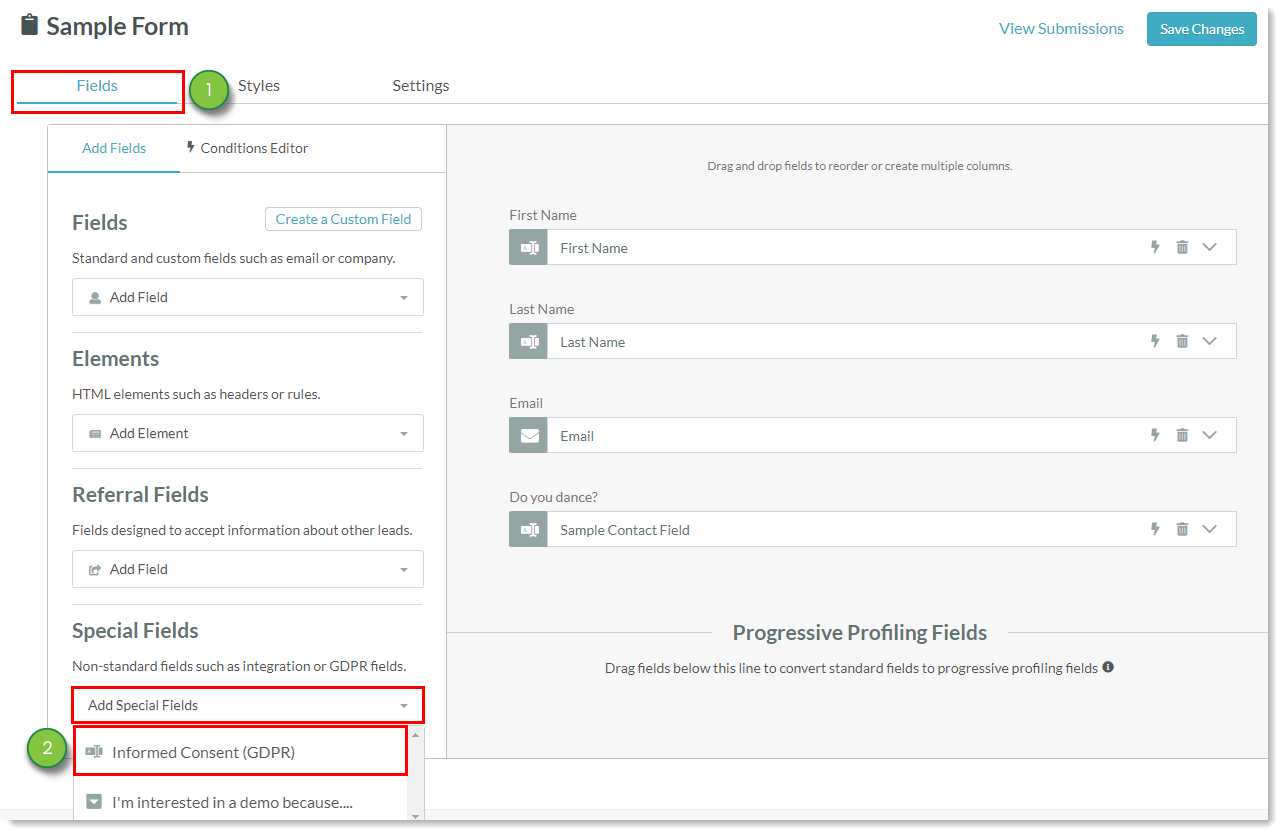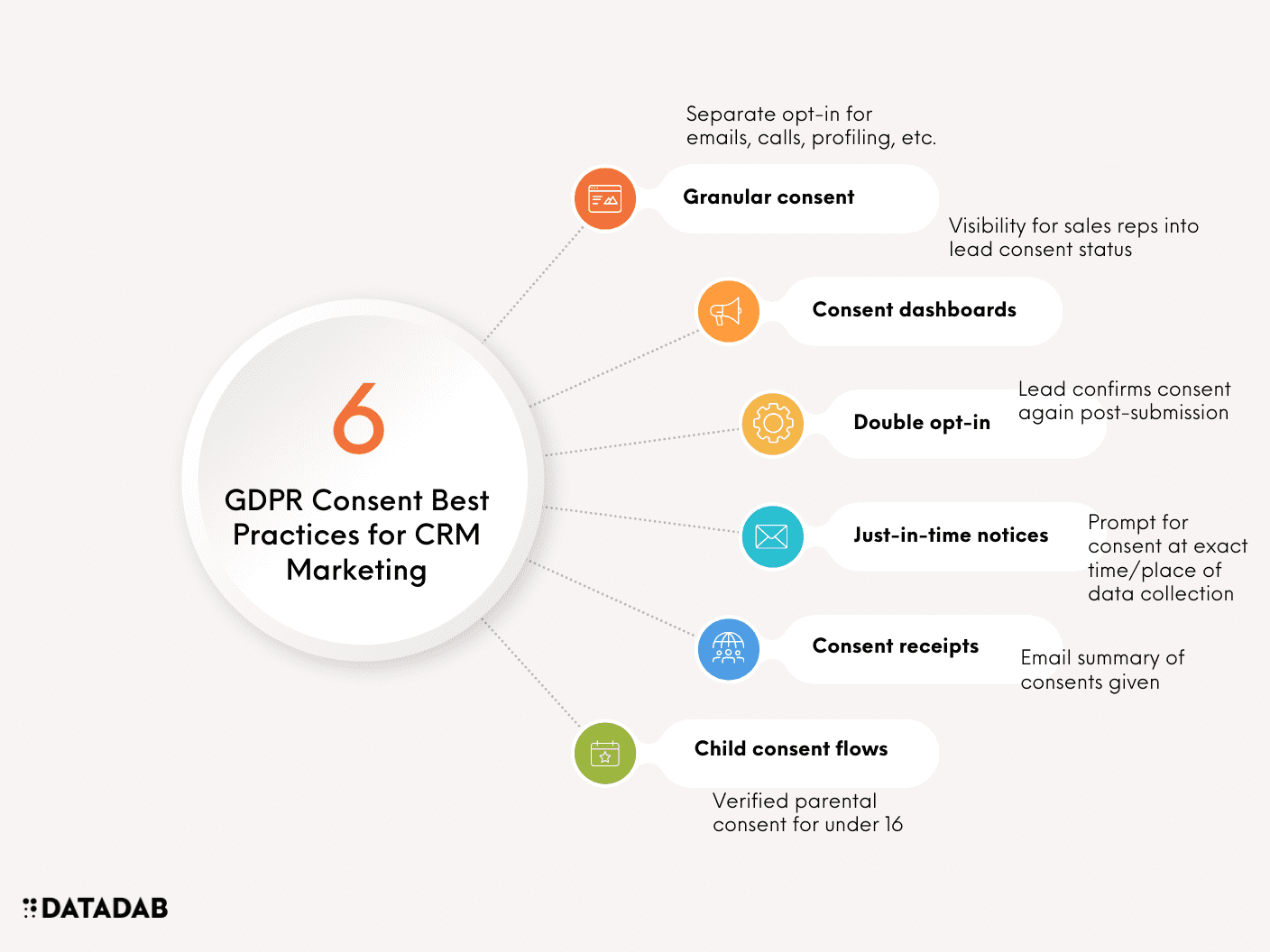
CRM with GDPR Consent Tracking: A Comprehensive Guide to Compliance and Customer Trust
In today’s data-driven landscape, Customer Relationship Management (CRM) systems are indispensable tools for businesses seeking to build lasting customer relationships and drive growth. However, with the advent of stringent data privacy regulations like the General Data Protection Regulation (GDPR), the way businesses collect, process, and store customer data has undergone a seismic shift. Integrating GDPR consent tracking into your CRM is no longer optional; it’s a legal imperative and a cornerstone of ethical customer engagement.
Understanding the Interplay of CRM and GDPR
At its core, GDPR grants individuals greater control over their personal data. It mandates that businesses obtain explicit, informed, and freely given consent before collecting and using an individual’s data for marketing, sales, or other purposes. CRM systems, which house vast amounts of customer information, must be adapted to comply with these requirements.
Why GDPR Consent Tracking is Essential for Your CRM
-
Legal Compliance: The most obvious reason is to avoid hefty fines and legal repercussions. Non-compliance with GDPR can result in penalties of up to 4% of your annual global turnover or €20 million, whichever is higher.
-
Building Customer Trust: Demonstrating a commitment to data privacy fosters trust and strengthens customer relationships. When customers feel confident that their data is being handled responsibly, they are more likely to engage with your brand and become loyal advocates.
-
Enhanced Data Quality: Implementing consent tracking forces you to be more mindful of the data you collect and how you use it. This leads to cleaner, more accurate data, which in turn improves the effectiveness of your marketing and sales efforts.
-
Improved Segmentation and Targeting: By tracking consent preferences, you can segment your audience based on their expressed interests and communication preferences. This allows you to deliver more relevant and personalized messages, leading to higher engagement rates and conversions.
-
Reduced Risk of Data Breaches: GDPR mandates that businesses implement appropriate security measures to protect personal data. Integrating consent tracking helps you identify and manage sensitive data, reducing the risk of data breaches and unauthorized access.
Key Features of a GDPR-Compliant CRM
A CRM system that is designed with GDPR in mind should include the following features:
-
Consent Management:
- Explicit Consent Collection: The CRM should enable you to obtain explicit consent from individuals before collecting and using their data. This means providing clear and concise information about how their data will be used and obtaining an affirmative action (e.g., a checked box) indicating their consent.
- Granular Consent Options: Allow individuals to provide consent for specific purposes (e.g., email marketing, targeted advertising, data sharing).
- Consent Recording: The CRM should automatically record the date, time, and method of consent for each individual. This creates an audit trail that can be used to demonstrate compliance.
- Consent Withdrawal: Make it easy for individuals to withdraw their consent at any time. The CRM should automatically update the individual’s record to reflect their withdrawal of consent.
-
Data Subject Rights Management:
- Right to Access: Enable individuals to easily access their personal data that is stored in the CRM.
- Right to Rectification: Allow individuals to correct inaccurate or incomplete data.
- Right to Erasure (Right to be Forgotten): Provide a mechanism for individuals to request the deletion of their personal data.
- Right to Restriction of Processing: Allow individuals to restrict the processing of their data in certain circumstances.
- Right to Data Portability: Enable individuals to receive their data in a structured, commonly used, and machine-readable format.
-
Data Security and Privacy:
- Data Encryption: Encrypt sensitive data both in transit and at rest.
- Access Controls: Implement strict access controls to limit access to personal data to authorized personnel only.
- Data Minimization: Only collect data that is necessary for the specified purpose.
- Data Retention Policies: Establish clear data retention policies that specify how long data will be stored and when it will be deleted.
- Data Breach Notification: Have a plan in place to notify data protection authorities and affected individuals in the event of a data breach.
-
Reporting and Auditing:
- Consent Reports: Generate reports that show the status of consent for all individuals in the CRM.
- Audit Logs: Maintain detailed audit logs that track all data processing activities, including consent collection, data access, and data modifications.
Implementing GDPR Consent Tracking in Your CRM
-
Assess Your Current CRM: Evaluate your existing CRM system to determine its GDPR compliance capabilities. If your current system lacks the necessary features, consider upgrading to a GDPR-compliant solution or integrating third-party consent management tools.
-
Update Your Privacy Policy: Ensure that your privacy policy is clear, concise, and easy to understand. It should explain how you collect, use, and protect personal data, and it should inform individuals of their rights under GDPR.
-
Train Your Employees: Educate your employees about GDPR requirements and the importance of data privacy. Train them on how to collect consent, process data, and respond to data subject requests.
-
Review Your Marketing Practices: Examine your marketing practices to ensure that you are only sending communications to individuals who have given their explicit consent. Implement a double opt-in process for email marketing to verify consent.
-
Monitor and Maintain Compliance: Regularly monitor your CRM system and processes to ensure that you are maintaining GDPR compliance. Stay up-to-date on changes to GDPR regulations and adapt your practices accordingly.
Choosing the Right CRM with GDPR Consent Tracking
When selecting a CRM system with GDPR consent tracking, consider the following factors:
-
Functionality: Does the CRM offer all the necessary features for GDPR compliance, including consent management, data subject rights management, data security, and reporting?
-
Integration: Does the CRM integrate with your existing marketing automation and other business systems?
-
Scalability: Can the CRM scale to meet the needs of your growing business?
-
Ease of Use: Is the CRM user-friendly and easy to learn for your employees?
-
Vendor Reputation: Does the CRM vendor have a strong reputation for data privacy and security?
Popular CRM Solutions with GDPR Compliance Features:
- Salesforce
- Microsoft Dynamics 365
- HubSpot CRM
- Zoho CRM
- SAP CRM
Conclusion
Integrating GDPR consent tracking into your CRM is not just about compliance; it’s about building trust with your customers and creating a sustainable business model. By prioritizing data privacy and empowering individuals to control their personal data, you can strengthen customer relationships, improve data quality, and enhance the effectiveness of your marketing and sales efforts.
The journey to GDPR compliance may seem daunting, but with the right CRM system and a commitment to data privacy, you can navigate the complexities of GDPR and build a business that is both compliant and customer-centric.

